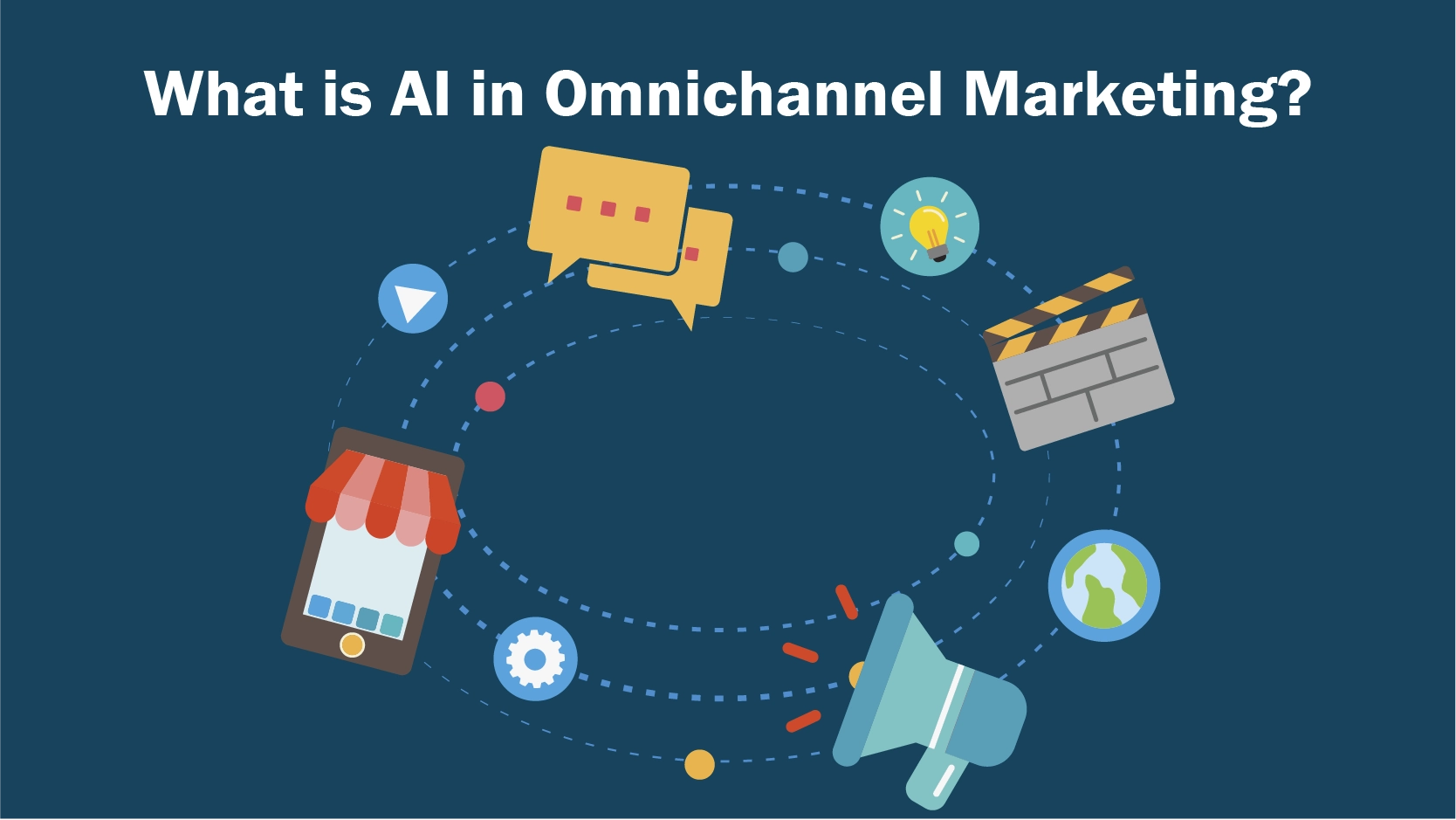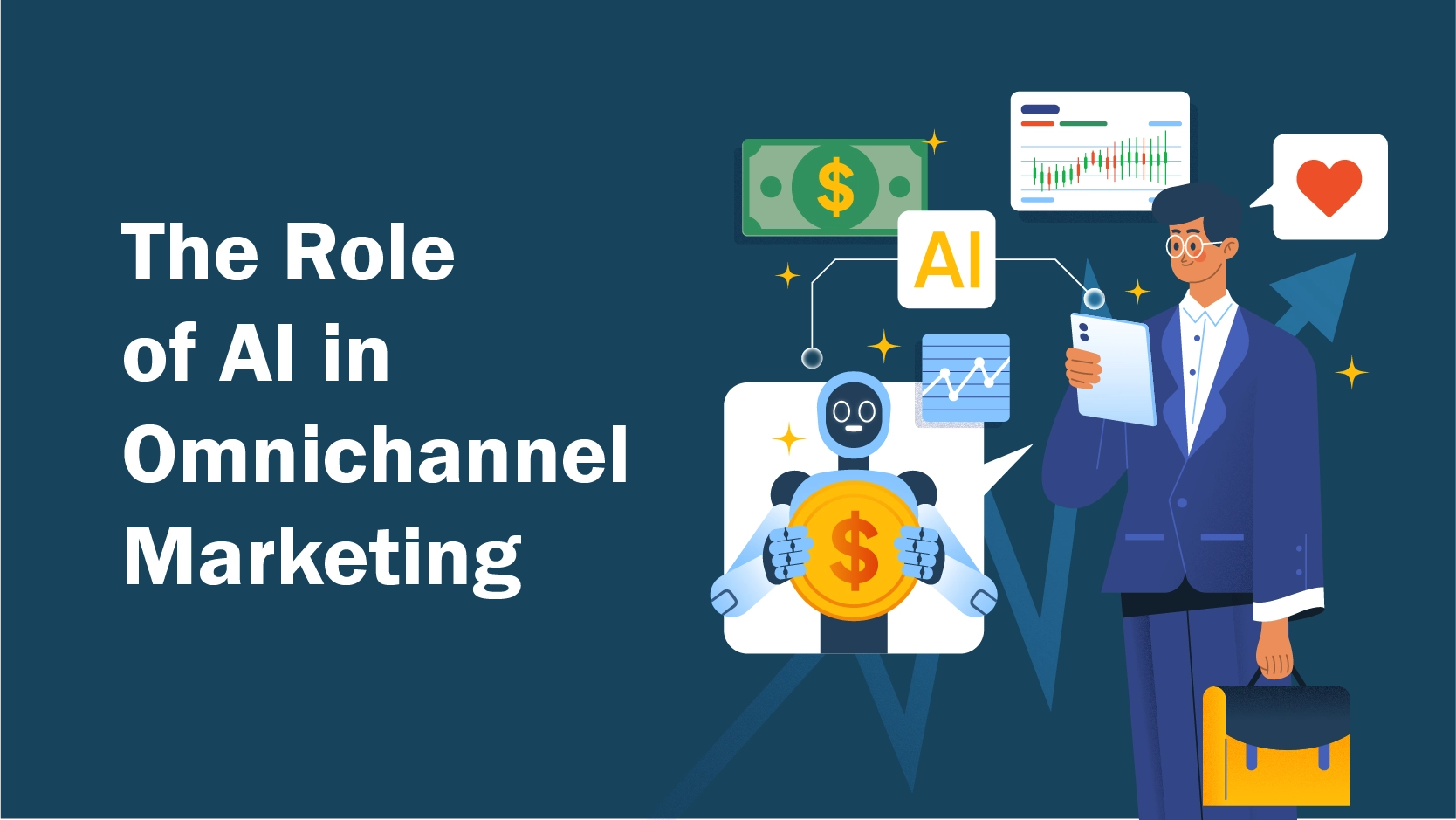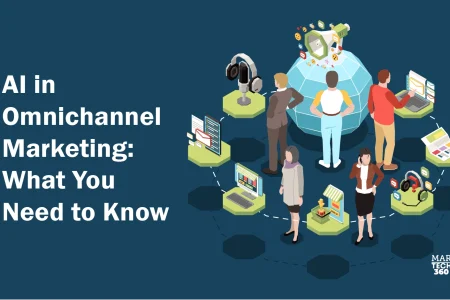Artificial intelligence is undeniably at the forefront of transforming the omnichannel experience in retail. A major trend within this shift is personalization. According to an October article by the Forbes Research Council, research indicates that 71% of customers now anticipate a personalized shopping experience. The article underscores that AI is crucial for fulfilling this growing expectation. This clearly shows that AI in omnichannel marketing is here to stay.
Now that we’ve set the stage, let’s learn more about this strategy, exploring its role, the methods for using it, and the brands that are thriving because of it.
What is AI in Omnichannel Marketing?

For instance, a customer might begin by exploring products on a company’s website, then switch to a mobile app to complete the purchase, and later visit a physical store to pick up the order or request additional support. Throughout this journey, customers expect consistency and personalization, and omnichannel marketing ensures this smooth, tailored experience for any business model—whether B2B, B2C, or D2C.
The Role of AI in Omnichannel Marketing

What truly unlocks the power of large-scale, end-to-end personalization is AI-driven omnichannel marketing automation. This technology ensures that businesses can deliver tailored experiences to each customer, at the right time and on the right platform, without manual intervention.
A variety of AI technologies come into play, including natural language generation, natural language processing (NLP), machine learning, and computer vision. Each of these AI systems contributes to different facets of the customer experience, from curating personalized product recommendations to automating customer support, ultimately leading to a more seamless and enjoyable shopping experience.
The dynamic between marketers and AI can be viewed as symbiotic. Marketers direct AI on what to focus on, refine testing strategies, and experiment with new ideas, while AI learns from the data it’s given, runs its own tests, and helps pinpoint exactly what the customer desires. Through this partnership, both the marketer and the AI system work together to continuously enhance the customer experience.
How to Use AI in Omnichannel Marketing?
Here are several effective ways to integrate AI into your omnichannel strategy for 2024 and beyond:
Gaining Insights into Customer Behavior: AI offers the capability to analyze interactions across various channels, helping you uncover patterns, preferences, and key buying triggers. With this data, you can craft tailored campaigns that resonate with specific customer segments, boosting engagement and driving conversions.
Enhancing Hyper-Personalization: AI enables the delivery of highly personalized content, recommendations, and offers tailored to individual customer profiles. For instance, an online retailer can use AI to suggest products a shopper is likely to be interested in based on their previous purchases or browsing history, creating a more engaging shopping experience.
Leveraging AI-Powered Chatbots: AI-driven chatbots can provide customer service around the clock, handling inquiries, offering support, and even facilitating transactions. This not only alleviates the pressure on human staff but also ensures customers have a reliable touchpoint for assistance at any time.
Optimizing Content Dynamically: With AI, your website or app can automatically analyze user behavior and adjust content in real-time. This means visitors will be presented with the most relevant information exactly when they need it, resulting in increased engagement and a higher likelihood of conversion.
Utilizing Predictive Analytics: AI’s predictive capabilities allow you to anticipate future customer behaviors, enabling you to target them proactively with personalized promotions or content. For example, if a customer recently browsed athletic apparel on your site, AI can recommend a complementary product, such as a new pair of sneakers, to encourage a sale.
Also Read: Avoid These 8 Common Dropshipping Mistakes for Better Profit Margins
How Are Brands Using AI in Omnichannel Marketing?
Many companies have successfully incorporated AI into their omnichannel marketing strategies. Here are some notable examples:
1. Starbucks
Starbucks has harnessed AI to significantly boost its omnichannel marketing efforts. Through their mobile app, which connects with their loyalty program, the company utilizes AI to analyze customer preferences and purchasing behavior. This allows Starbucks to offer highly personalized recommendations and promotions tailored to individual customers. The app’s functionality also enables customers to place orders and pay ahead of time, making their in-store experience faster and more convenient.
2. Amazon
Amazon has long been a trailblazer in using AI for omnichannel marketing. The company’s AI algorithms analyze customers’ browsing habits and past purchases to suggest relevant products. Amazon’s Echo devices, powered by its AI assistant Alexa, enable a voice-activated shopping experience that seamlessly integrates with their online store. Furthermore, Amazon Prime provides a unified, customer-centric experience, offering benefits like free shipping, streaming services, and more, all in one cohesive ecosystem.
3. Sephora
Sephora, the global beauty retailer, has employed AI to create a more personalized and interactive shopping experience. Their mobile app’s Sephora Virtual Artist feature, powered by AI, allows users to try on makeup virtually, giving them a unique and engaging way to explore products. In addition, Sephora uses AI to send customized product recommendations and beauty advice through email and social media. This ensures that whether customers are shopping online or in-store, their experience is consistent and tailored to their needs.
4. Nike
Nike has improved its omnichannel marketing approach by using AI to give customers a more dynamic and personalized experience. Users can receive personalized product recommendations and special offers from the Nike App based on their likes and activity. In addition to using AI to engage customers, Nike uses it to optimize their supply chain and maintain inventory of well-liked products. Nike offers a smooth and captivating brand experience across all platforms by fusing online and offline activities, such as in-store events and the Nike Training Club app.
To Conclude…….
AI in omnichannel marketing strategies represents a significant leap forward for businesses seeking to enhance customer engagement and streamline their operations. By leveraging AI, companies like Starbucks, Amazon, Sephora, and Nike have demonstrated how advanced technology can personalize and refine the customer journey across multiple channels. However, it’s crucial to acknowledge the challenges associated with omnichannel marketing, such as maintaining consistency across diverse touchpoints and managing complex data streams.
As AI technology continues to evolve, businesses must navigate these challenges while capitalizing on the opportunities AI offers. Embracing AI in omnichannel marketing not only helps address these complexities but also positions companies to deliver more cohesive, responsive, and personalized experiences, ultimately driving greater customer satisfaction and loyalty.

